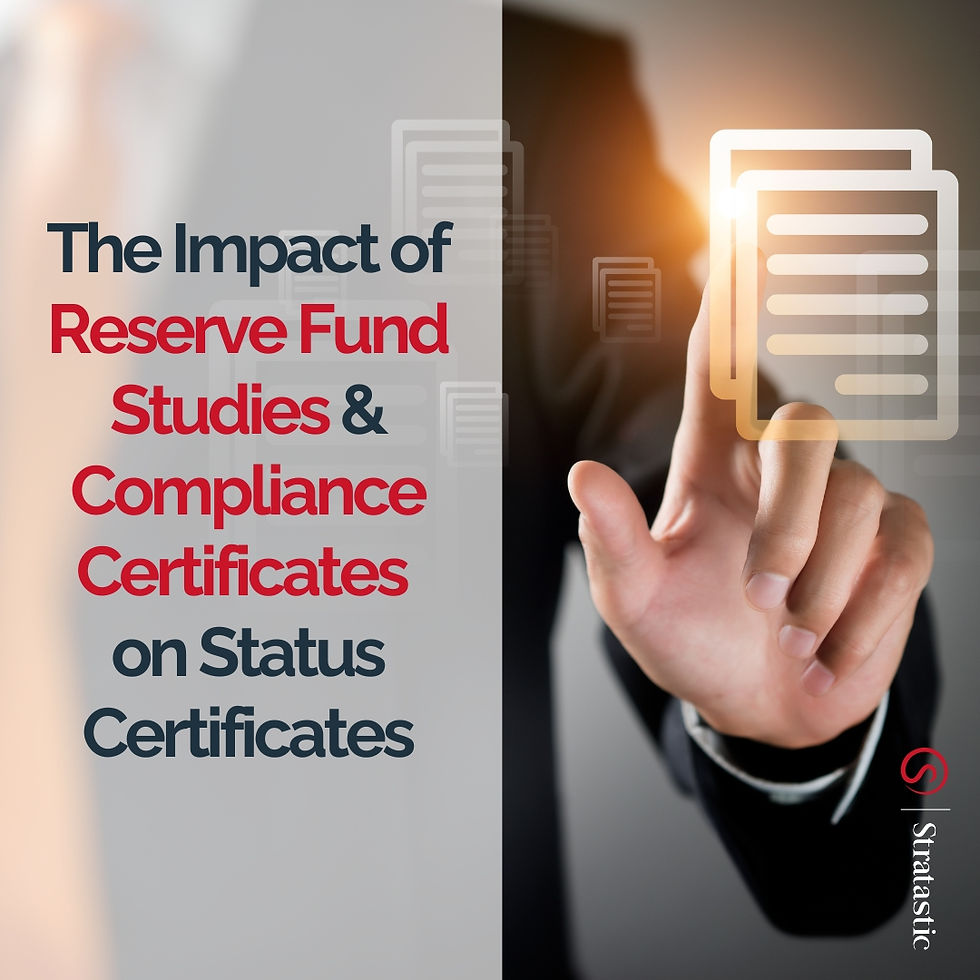
When managing shared facilities, one of the most crucial documents that can make or break a deal is the status certificate. This small but powerful piece of paperwork holds the key to understanding the financial health and obligations tied to a property.
In a recent conversation among industry experts, the discussion centered around how multiple reserve fund studies and shared facilities agreements affect the status certificate—and how even a small mistake or oversight can lead to big consequences for buyers, sellers, and property managers alike.
The Role of Reserve Fund Studies in Status Certificates
An often overlooked but vital element in property management is the reserve fund notice, which plays a significant role in the status certificate. When a property has multiple shared facilities, each with its own reserve fund study, it’s crucial that all relevant information is included in the status certificate. Essentially, the status certificate serves as a snapshot of the property’s financial standing, allowing potential buyers to assess its condition before finalizing any purchase.
For example, if a property has five shared facilities, each with its own reserve fund study, six notices need to be attached to the status certificate—one for the tower itself and one for each shared facility. Failing to include all necessary reserve fund notices can be a costly oversight. If a buyer is unaware of special assessments tied to any shared facility, they could be left holding the bill for something they weren’t informed about. This lack of disclosure not only puts the buyer at a disadvantage but could lead to legal complications for the seller.
📰 Basic Guide on Completing Condo Status Certificates - What property managers can’t miss and why! >
Addressing Defaults Under Shared Facilities Agreements
But what happens if things go wrong with one of those shared facilities? What if there’s a default or dispute under one of the shared facilities agreements?
The status certificate needs to go beyond simply attaching reserve fund notices; it must also provide clear disclosure of any issues related to shared facilities agreements. If there are any defaults, unresolved disputes, or legal matters, they must be fully outlined in the status certificate to ensure that all parties involved are fully aware of the property’s obligations and risks. This level of transparency helps potential buyers understand exactly what they’re getting into, reducing the chances of unpleasant surprises down the road.
Role of Compliance Certificates

In addition to the status certificate, the compliance certificate plays an important role when dealing with shared facilities, particularly in cases involving freehold interests. For example, if one of the parties in a shared facility agreement is a freehold entity, such as a retail business or parking garage, they may request a compliance certificate when selling their interest in the property.
A compliance certificate serves as a formal confirmation that the shared facility agreement is still valid and unchanged. It also indicates whether there are any outstanding payments or unbilled work associated with the shared facility. Much like the status certificate, the compliance certificate ensures clarity and transparency, confirming that the shared agreement is in good standing and that there are no surprises for the buyer or seller involved.
The Importance of Clarity and Transparency
Ultimately, the key takeaway from these documents—status certificates, reserve fund studies, and compliance certificates—is that clarity and transparency are critical when managing shared facilities and their related agreements. Properly attaching all reserve fund notices, addressing potential defaults, and ensuring that compliance certificates are up-to-date are all essential steps in preventing confusion, legal disputes, or financial burdens for all parties involved.
By paying attention to the details and ensuring that the proper notices and certificates are in place, property managers can protect both the buyer and the seller, helping to ensure a smooth, informed transaction. It's not just about following procedure—it’s about creating an environment of trust, protecting everyone’s interests, and making sure all parties fully understand their rights and obligations before moving forward.
Reserve Fund Studies and Compliance Certificates on Status Certificates: In Conclusion
Managing shared facilities is much more than keeping the lights on or ensuring the elevators are working—it's about effective communication, clear documentation, and making sure everyone involved is aware of their responsibilities. The next time you're handling a status certificate, remember to consider the impact of reserve fund studies, shared facilities agreements, and any potential defaults.
By addressing these issues with care and transparency, you'll help guarantee a smooth, informed transaction for everyone involved.
-Stratastic Inc.
Stay updated! Keep in touch and stay on top of all things condo by subscribing to our blog for more useful guides like this one!

Comments